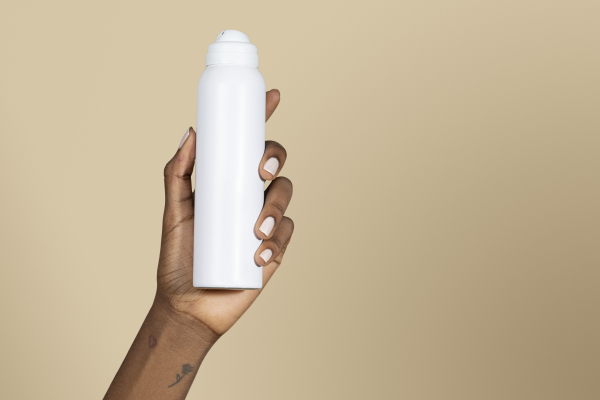- Europa
-
- Amstetten(7)
- Bad Schallerbach(1)
- Baden(4)
- Berg(1)
- Braunau am Inn(5)
- Bregenz(3)
- Bruck an der Mur(1)
- Graz(4)
- Hartberg(1)
- Innsbruck(5)
- Kemmelbach(1)
- Kitzbühel(4)
- Klagenfurt(5)
- Krems an der Donau(1)
- Kufstein(5)
- Leibnitz(1)
- Lienz(1)
- Liezen(1)
- Linz(5)
- Oetz(1)
- Punitz(1)
- Radstadt(1)
- Salzburg(5)
- St Polten(2)
- Steiermark(1)
- Steyr(1)
- Steyregg (1)
- Traun(3)
- Vienna(26)
- Villach(5)
- Völkermarkt(1)
- Wels(5)
- Wien(1)
- Wiener Neustadt(4)
-
- Aalst(1)
- Aarschot(2)
- Affligem(1)
- Anderlecht(5)
- Antwerp(11)
- Antwerpen(1)
- Arlon(6)
- Ath(2)
- Aubange(5)
- Bastogne (2)
- Blankenberge (1)
- Bruges(5)
- Brussels(15)
- Charleroi(5)
- Deinze(3)
- Dendermonde(1)
- Diest(2)
- Etterbeek(5)
- Geel(1)
- Genk(5)
- Gent(6)
- Geraardsbergen(1)
- Grimbergen (2)
- Hasselt(5)
- Heusden- Zolder(2)
- Ieper(1)
- Izegem(1)
- Knokke(4)
- Kortrijk(2)
- La Louviere(2)
- Leuven(5)
- Liege(4)
- Limburg(4)
- Lommel(1)
- Mortsel(1)
- Oostende(1)
- Turnhout(1)
-
- Chelyabinsk(1)
- Dubna(4)
- Gelendzhik(1)
- Irkutsk(1)
- Kaliningrad(1)
- Kazan(4)
- Krasnodar(3)
- Krasnoyarsk(1)
- Maykop(1)
- Moscow(50)
- Nizhny Novgorod(4)
- Novosibirsk(1)
- Omsk(1)
- Penza(1)
- Rostov-on-Don(2)
- Saint Petersburg(13)
- Samara(1)
- Saratov(1)
- Serpukhov (2)
- Sevastopol(3)
- Sochi(5)
- Stavropol(1)
- Surgut(1)
- Tyumen(2)
- Ufa(2)
- Vladivostok(3)
- Yekaterinburg (11)
-
- Alicante(8)
- Barcelona(113)
- Benalmadena(1)
- Benidorm(7)
- Castellón de la Plana(1)
- Denia(1)
- Estepona(1)
- Fuengirola (3)
- Ibiza(49)
- Jerez de la Frontera(1)
- Lanzarote(1)
- Las Palmas de Gran Canaria(5)
- Madrid(57)
- Malaga(9)
- Marbella(48)
- Murcia(1)
- Oviedo(1)
- Palma de Mallorca(48)
- Puerto Banus(3)
- Seville(1)
- Tarragona(1)
- Tenerife(7)
- Torrevieja(3)
- Valencia(9)
- Vigo(1)
- Zaragoza(1)
- Worldwide
Common Mistakes Leading to Ineffective Deodorant Usage

Are you struggling with excessive sweating and wondering why your deodorant fails to provide adequate protection? It's possible that you're unknowingly making some crucial mistakes. Let's delve into seven common errors that can render even the most effective antiperspirants ineffective.
Application Timing
Many apply deodorant or antiperspirant in the morning right after showering, but this could be a misstep. Dermatologists suggest applying these products at night because sweat glands are less active during sleep. This allows the product to absorb better and control sweat production for up to 24 hours. In the morning, feel free to shower as usual without worrying about washing away the product's efficacy.
Applying on Damp Skin
Another common mistake post-shower is applying deodorant on wet skin. It's essential to wait until your skin is completely dry before application. Moisture can prevent proper absorption, diminishing the product's ability to effectively combat sweat and odor. For best results, ensure your skin is thoroughly dry before applying any deodorant or antiperspirant.
Insufficient Application
A thin layer of product isn't enough for full protection against sweat. For stick or roll-on deodorants, apply twice, ensuring thorough coverage. If using an aerosol, hold it close to each armpit for a few seconds to allow adequate distribution. However, avoid over-application, as excess product can take longer to absorb into the skin and may stain clothing.
Inadequate Skin Cleansing
Bacteria are often the root cause of body odor. By using an antibacterial body wash under your arms, you can effectively eliminate these odor-causing agents. Swap your regular shower gel for an antibacterial version, especially formulated for sensitive underarm skin, to ensure a more thorough cleansing.
Reapplying Without Cleansing
It's tempting to reapply deodorant when you notice odor throughout the day, but doing so without cleansing can exacerbate the issue. Sweat mixed with residual product can intensify odor rather than mask it effectively. Before reapplying, cleanse the area with a gentle cleanser or wipes designed for quick odor removal.
Clothing Choices
The type of fabric you wear can also affect how well your deodorant works. Synthetic fabrics don't breathe well, trapping sweat and intensifying odor. Opt for natural fibers like cotton, which allow better airflow and minimize the retention of sweat and odor.
Choosing the Wrong Product
Lastly, using the wrong type of product can lead to ineffective odor control. Deodorants mask odor, while antiperspirants control sweat production. For those needing both, consider dual-action products that offer sweat protection alongside odor masking. Understanding your needs and choosing accordingly can significantly enhance your daily comfort.
By avoiding these common mistakes and optimizing your deodorant application routine, you can ensure better protection against sweat and odor throughout the day. Experiment with these tips to find what works best for your body and lifestyle, ensuring you stay fresh and confident, no matter the circumstances.









